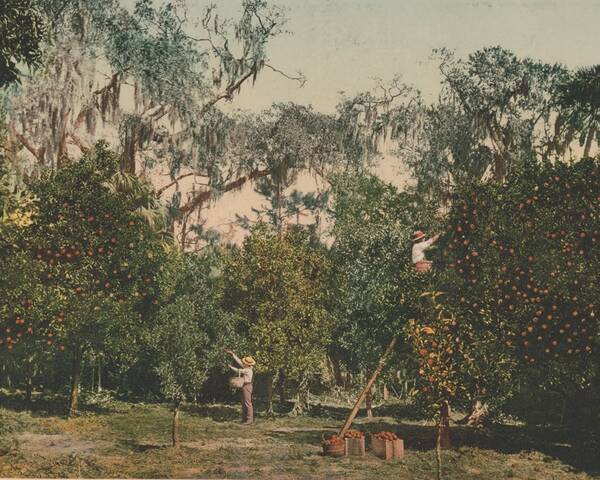You are now entering the Jewish Currents archive.
Among Young Communists in the Bronx
by Marissa Piesman
Discussed in this essay: A Distant Heartbeat: A War, a Disappearance, and a Family’s Secrets, by Eunice Lipton. University of Mexico Press, 2016, 176 pages.
 I WILL WILLINGLY read any book in which “YCL” (Young Communists League) and “Tremont Avenue” appear in the same sentence — and Eunice Lipton’s family memoir was a true pleasure. Lipton has created a nuanced portrait of a conventionally meshugene immigrant family living in the South Bronx (formerly known as the Bronx). The three Lipton brothers struggled through the Depression in their own over-determined ways. The oldest was a respectable doctor. and the middle brother a womanizing hondler. The youngest, Lipton’s Uncle Dave, was the sweet, kind luftmentsh who offered himself up to fight Franco’s forces in 1938. After three months in Spain he was shot dead at the age of 22.
I WILL WILLINGLY read any book in which “YCL” (Young Communists League) and “Tremont Avenue” appear in the same sentence — and Eunice Lipton’s family memoir was a true pleasure. Lipton has created a nuanced portrait of a conventionally meshugene immigrant family living in the South Bronx (formerly known as the Bronx). The three Lipton brothers struggled through the Depression in their own over-determined ways. The oldest was a respectable doctor. and the middle brother a womanizing hondler. The youngest, Lipton’s Uncle Dave, was the sweet, kind luftmentsh who offered himself up to fight Franco’s forces in 1938. After three months in Spain he was shot dead at the age of 22.
No one in the family could understand why he went; it angered them. “Why the Cause?” his nephew asked. “Why not the family? To give your life for a great cause or for humanity is easy. But to support your family, to support one person you love throughout his life, that’s what is tough. He betrayed his family. He didn’t get a job, he ran away.”
My father was born in the same year as Dave Lipton, was perhaps in the same cell. I once asked him if he had considered joining the Lincoln Brigade. He had not; he did not elaborate as to why. Of course, getting shot dead in the Sierra Pandols might not appeal to everyone. But I now realize there must have been family pressure to stay home. In 1938 he worked for the post office, helping to support the Piesmans on his lavish government salary. He made forty dollars a week, out-earning everyone on Fairmount Place, admittedly a very short street that runs only two blocks between Prospect Avenue and Southern Boulevard. Now of course I realize that his salary tethered him to the Bronx.
Eunice Lipton, without ever having met her uncle, manages to make Dave come alive. Smart, literate, and patient, he would have made a wonderful schoolteacher. Unlike the author’s father, Dave escaped the crude curse of testosterone poisoning. He was, in fact, a virgin when he set sail for Europe. The author, an art historian (and probable yenta) with highly developed research skills, considers whether her uncle might have been gay.
THE BOOK CONTAINS photos, and you can’t help but fall for Dave. He had a beautiful and sensitive face, sincerity emanating from every pore. His death is tragic to the reader, as it was to his niece. But as a Bronx-born-and-raised Jewish mother with millennia of anxiety inextricably bound into my genetic helix, I worry and wonder about the Dave who might have come home with the surviving Brigadeers.
I think of my father, Uncle Dave’s doppelganger, and what he had to endure by staying home. The year after Dave was shot, the German-Soviet Nonaggression Pact was signed. Those who were vocally critical lost not only their Party membership but their seat in the YCL alcove in the City College cafeteria. My father suffered this loss. A few years later, he saw action in the invasion of Sicily and watched his comrades die. When he returned to night school after the war, he earned a degree in political economics. He aspired to teach history and was well-suited (he never forgot a date; formerly considered an admirable quality, this now dooms one to a place on the spectrum). But by the time he got his college degree, the loyalty oath had been invented. His final blow came when the Giants moved to San Francisco. He was now a man without a cell, an alcove, a salary, or a baseball team. Uncle Dave might very well have suffered the same losses. And if he was indeed gay, he would have had more to worry about than just loyalty oaths — bar raids, dishonorable discharges, employment discrimination; even if you outlived Joe McCarthy, you still had J. Edgar Hoover to deal with for another fifteen years.
A complicated century indeed. I am grateful to Eunice Lipton for her deep digging and haunting descriptions. She has helped me to understand why I am never alone in a room, why my ancestors are always with me. And now, so is Uncle Dave, sitting next to me, relentlessly chanting the chorus to Freiheit: Far off is our land, yet ready we stand. We’re fighting and winning for you (oh victory). Freiheit!
Marissa Piesman is Special Counsel to the New York State Attorney General. She is the author of the Nina Fischman mystery series and coauthored The Yuppie Handbook. She formerly worked for Harlem Legal Services.
